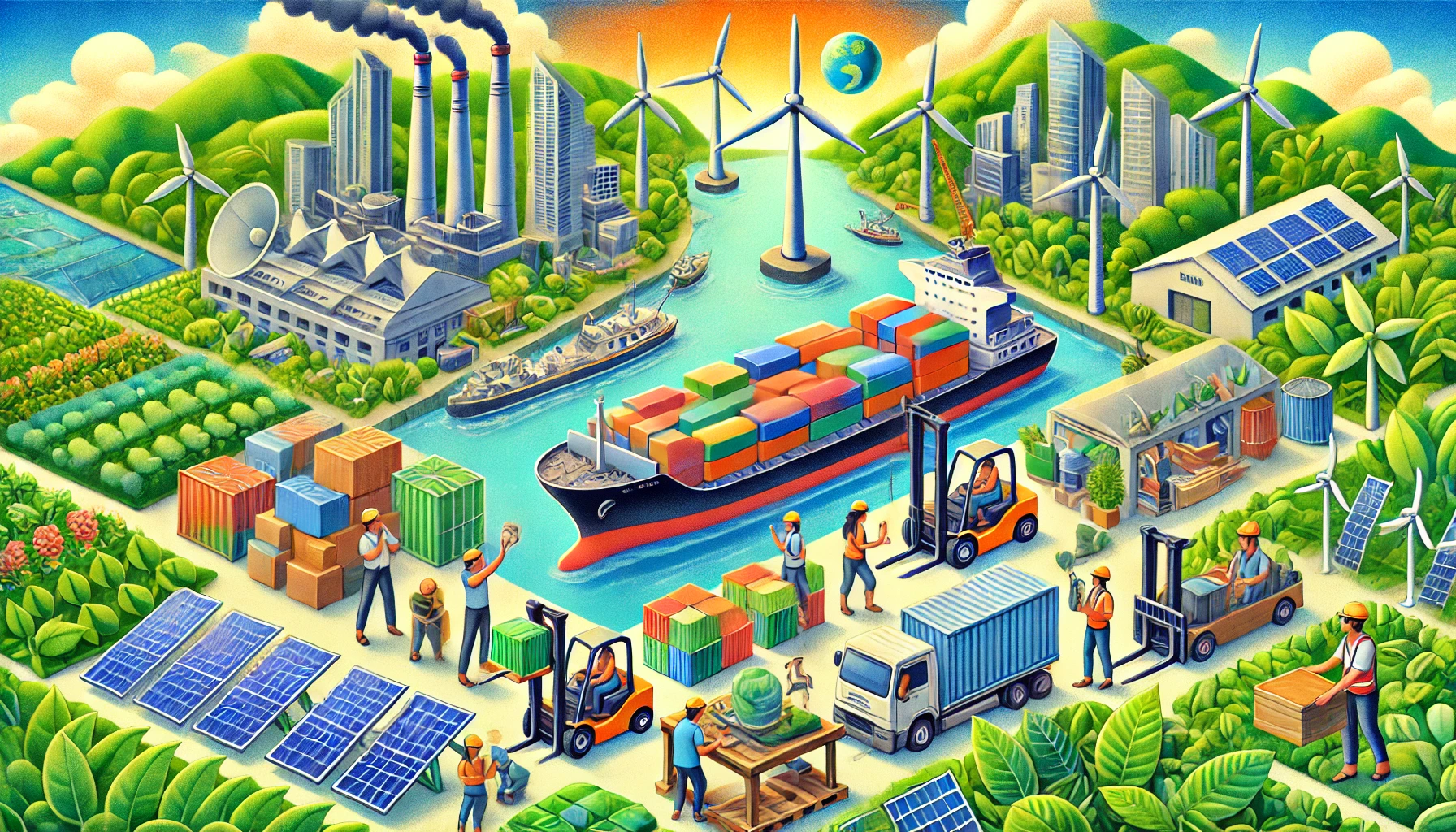World Bank and Bangladesh Commit $900M for Climate Resilience and Inclusive Growth
Financing Will Support Green Growth, Urban Infrastructure, and Climate Adaptation across Bangladesh.

Bangladesh and the World Bank have signed two financing agreements today totaling $900 million to support the country’s transition to green growth, bolster climate resilience, and enhance urban infrastructure. These agreements aim to address Bangladesh’s climate vulnerabilities and promote inclusive development, with a focus on creating sustainable urban infrastructure and improving climate resilience in key sectors.
“We recognize that Bangladesh is among the most vulnerable countries to climate change, and this vulnerability affects both rural and urban communities,” said Abdoulaye Seck, World Bank Country Director for Bangladesh and Bhutan. “This financing will help Bangladesh transition to a greener, more climate-resilient future, supporting development in urban areas while enhancing the country's preparedness for climate risks. The World Bank remains committed to supporting Bangladesh in achieving its development goals while improving its resilience to climate change.”
$500 Million for Green and Climate Resilient Development
The first agreement, valued at $500 million, is the Second Bangladesh Green and Climate Resilient Development Credit. This financing will support policy reforms aimed at fostering a transition to green, sustainable development across Bangladesh. It will focus on strengthening public planning and financing mechanisms, enhancing the implementation of climate-resilient projects, and promoting the adoption of clean and resource-efficient practices in critical sectors.
Key areas of support include:
- Reducing air pollution
- Enhancing environmental enforcement
- Expanding access to carbon markets
- Improving water and sanitation services
- Advancing the Bangladesh Delta Plan 2100
- Promoting sustainable public procurement and green construction practices
Additionally, the financing will improve energy efficiency in buildings and appliances and incentivize the construction sector to adopt greener practices.
$400 Million for Resilient Urban and Territorial Development
The second agreement, worth $400 million, focuses on the Resilient Urban and Territorial Development Project. This project will improve climate-resilient, gender-responsive urban infrastructure and enhance urban management capacities in seven key city clusters along the economic corridor stretching over 950 kilometers from Cox’s Bazar in the south to Panchagarh in the north of Bangladesh.
The project is expected to benefit approximately 17 million people living in these urban areas. Key objectives include:
- Coordinated investment in climate-resilient infrastructure
- Strengthening planning across secondary cities
- Job creation through infrastructure development
The project will include the construction of over 300 kilometers of footpaths, 10 regional bus terminals, 10 kitchen markets, 10 supermarkets, 10 parks, 10 community centers, 20 public toilets, 880 kilometers of urban roads, and 2,000 meters of bridges and culverts.
The infrastructure designs will incorporate green features such as rainwater harvesting and prioritize the needs of female users. Selected municipalities and city corporations will receive grants to fund gender-responsive and climate-resilient projects.
Commitment to Long-Term Development
The financing agreements were signed by Shahriar Siddiky, Secretary, and Farid Aziz, Additional Secretary, Economic Relations Division, on behalf of Bangladesh, and Abdoulaye Seck on behalf of the World Bank.
Since Bangladesh’s independence, the World Bank has been a key partner in the country’s development, committing more than $45 billion in International Development Association (IDA) financing in the form of grants, interest-free loans, and concessional credits. Bangladesh has become one of the largest recipients of IDA financing in recent years, receiving significant support to address its development challenges.
Strengthening Partnerships for Sustainable Growth
This new financing underscores the World Bank’s commitment to supporting Bangladesh’s climate resilience and sustainable urban development. By focusing on green growth and climate-resilient infrastructure, the project aims to drive inclusive development and provide a model for other vulnerable countries facing similar climate risks.
As Bangladesh continues to make strides towards climate adaptation, these agreements serve as a testament to the long-standing partnership between the country and the World Bank, further strengthening the foundation for future sustainable development initiatives.
- READ MORE ON:
- World Bank
- Bangladesh
- urban infrastructure
- climate resilience
- Abdoulaye Seck
ALSO READ
Visa Operations Halted Amid Unrest After Youth Leader's Death in Bangladesh
1971 War Battalion Returns to Tripura Amidst Bangladesh Unrest
India Dismisses Claims of Security Breach at Bangladesh Mission
Congress indulging in anti-national activities, allowing illegal Bangladeshi immigrants to settle in Assam, alleges PM at rally in Dibrugarh.
Left Parties Condemn Rising Fundamentalist Violence in Bangladesh










